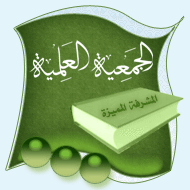 |
 |
جديد المواضيع |
 |
 |
|
|
|
|||||
 |
 |
إضافة إهداء |
 |
 |
|
|
|
|||||
 |
 |
جديد المواضيع |
 |
 |
|
|
|
|||||
 |
 |
إضافة إهداء |
 |
 |
|
|
|
|||||
 |
 |
 |
 |
|||
| قريبا | للمشتاقين " فك قيدك " (متجدد) بقلم : الجومان |
قريبا | قريبا |
 |
 |
|
||||||||||
 
|
|
|
أدوات الموضوع | تقييم الموضوع |
|
|
رقم المشاركة : 1 | ||
|
SYNTAX is the study of structure of the language .
There are many concepts in this science here are some Subject & Predicate A simple complete sentence consists of a subject and a predicate. 1-The subject is typically a noun phrase, though other kinds of phrases (such as gerund phrases) work as well, and some languages allow subjects to be omitted. 2-The predicate is a finite verb phrase: it's a finite verb together with zero or more objects, zero or more complements, and zero or more adverbials. Clauses In grammar, a clause is a pair or group of words that consist of a subject and a predicate, although in some languages and some types of clauses, the subject may not appear explicitly as a noun phrase. It may instead be marked on the verb (this is especially common in null subject languages). The most basic kind of sentence consists of a single clause; more complicated sentences may contain multiple clauses, including clauses contained within clauses.. Under this classification scheme, there are three main types of dependent clauses: 1-noun clauses, 2-adjective clauses, and 3- adverb clauses, so-called for their syntactic and semantic resemblance to nouns, adjectives, and adverbs, respectively. Complement : A word, phrase or clause that follows a verb and which simply adds further information concerning, usually, the verb's subject. Complements usually follow stative verbs such as 'to be' to create a statement (i.e. a declarative sentence), e.g. 'He is happy'. Here the adjective 'happy' is the subject complement. However, in the sentence, 'He made me happy', the adjective happy is called an object complement as it gives more information about the verb's object, me . Modification describes the grammatical process through which the meaning of a head word within a phrase can be altered, refined or modified. This is done by the addition of one or more words. The result of the modification of a word is the creation of a phrase e.g. in the noun phrase, 'A criminal act', the head word (the noun 'act') is modified by the noun 'criminal'. Nouns can be both pre-modified (by linking with one or more adjectives, e.g. A tall dark stranger' or with other nouns, e.g. 'oven glove') as well as post-modified, e.g. 'The man with an ice-cream. Prepositional phrases can also act as modifiers when they act as the complement of a verb, as in, 'He's in a mess' |
||

|
|
|
رقم المشاركة : 2 | ||||
|
we are very thankful for your great contribution
keep it going sister
|
||||

|
|
|
رقم المشاركة : 3 | ||||
|
That is so precious information
Thanks so much
|
||||

|

|
| الكلمات الدلالية (Tags) |
| syntax |
| يتصفح الموضوع حالياً : 1 (0 عضو و 1 ضيف) | |
| أدوات الموضوع | |
| تقييم هذا الموضوع | |
|
|
|
|
|
Powered by vBulletin® Version 3.8.1 |
|
vBulletin Skin developed by : Rsm-w.com |
 |
 |